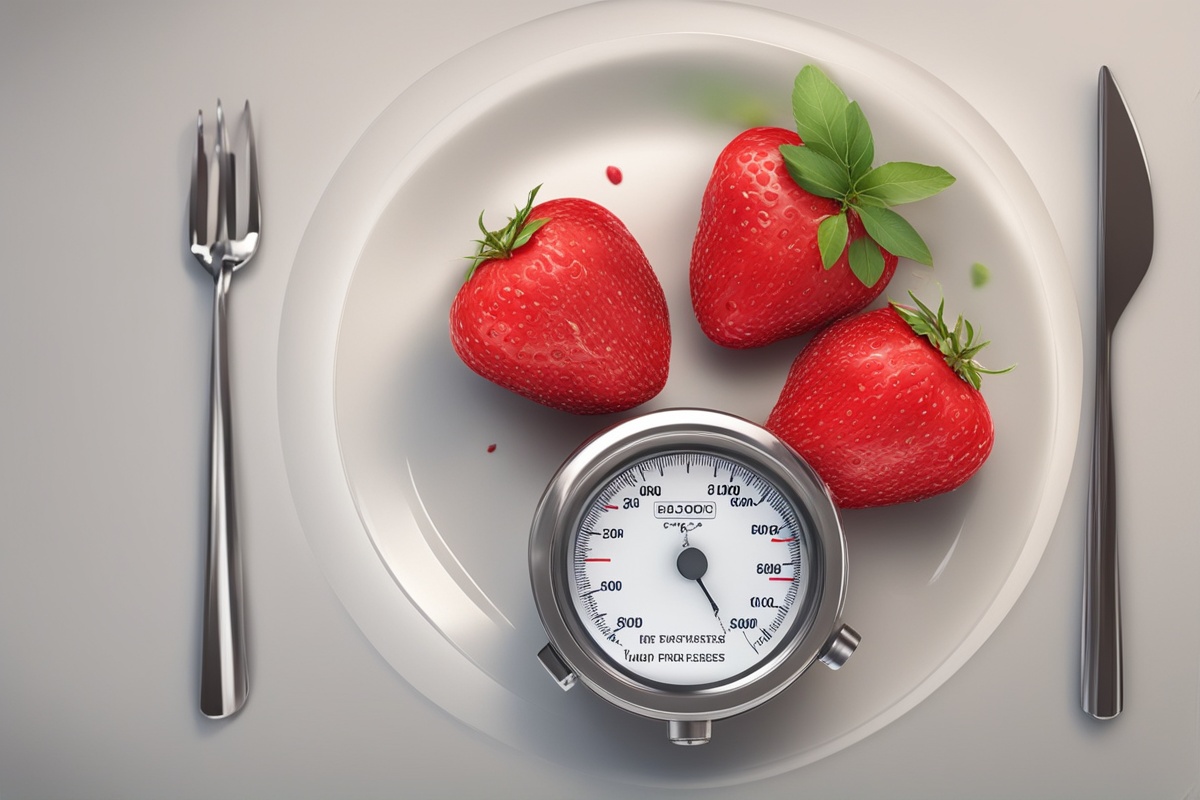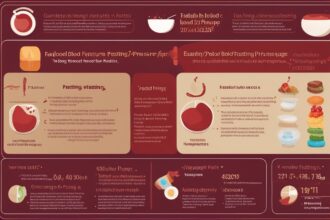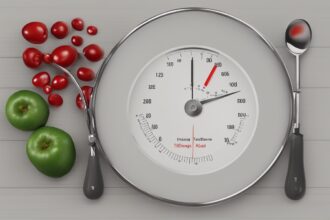Hey there, health enthusiasts! If you’ve been curious about health fasting and how it might affect your blood pressure, you’re in the right place. Fasting, a practice that’s been around for centuries, has gained massive attention in recent years for its potential health benefits. From weight loss to improved mental clarity, fasting is often touted as a game-changer. But what about its impact on something as critical as blood pressure? High blood pressure, or hypertension, affects millions worldwide and is a major risk factor for heart disease. In this deep dive, we’ll explore the fascinating connection between fasting and blood pressure, unpack the science, and share actionable tips to help you navigate this journey safely. Let’s get started!
What Is Health Fasting, and Why Does It Matter?
When we talk about health fasting, we’re referring to the intentional act of abstaining from food and sometimes drink for a specific period. This isn’t just about skipping breakfast on a busy morning; it’s a structured approach to eating—or not eating—that can range from intermittent fasting (like the 16:8 method) to extended water fasts lasting several days. Fasting has roots in cultural, religious, and therapeutic practices, but today, it’s often embraced for its potential to boost wellness. So, why does it matter? Emerging research suggests that fasting can influence various aspects of health, including metabolism, inflammation, and yes, blood pressure. Understanding how fasting works in your body is the first step to leveraging its benefits for cardiovascular health.
The Science Behind Fasting and Blood Pressure
Let’s get into the nitty-gritty of how health fasting might influence blood pressure. Blood pressure is the force of blood pushing against the walls of your arteries, and when it’s consistently high, it strains your heart and vessels. Studies indicate that fasting can trigger physiological changes that may lower blood pressure. For instance, fasting often leads to a reduction in insulin levels, which can decrease sodium retention in the body—a key factor in blood pressure regulation (Fung & Moore, 2016). Additionally, fasting promotes autophagy, a cellular cleanup process that may reduce inflammation, another contributor to hypertension (Mattson et al., 2017). A 2018 study even found that intermittent fasting reduced systolic blood pressure in participants over eight weeks (Wilkinson et al., 2018). While the exact mechanisms aren’t fully understood, these findings suggest that fasting could be a promising tool for managing blood pressure naturally.
Types of Fasting and Their Impact on Blood Pressure
Not all fasting methods are created equal, and their effects on blood pressure can vary. Let’s break down a few popular approaches to health fasting and what research or anecdotal evidence says about their cardiovascular impact:
- Intermittent Fasting (IF): This involves cycling between eating and fasting windows, like 16 hours of fasting and 8 hours of eating. Some studies show IF can lower blood pressure by reducing body weight and improving insulin sensitivity (Patterson & Sears, 2017).
- Water Fasting: A more intense form, where you consume only water for 24 hours or more. Limited research suggests short-term water fasting may temporarily lower blood pressure, but it requires medical supervision (Goldhamer et al., 2002).
- Time-Restricted Eating (TRE): Similar to IF, TRE limits daily eating to a specific window, often 10–12 hours. Early evidence points to modest blood pressure improvements, especially when paired with a healthy diet.
- Alternate-Day Fasting (ADF): This alternates between normal eating days and very low-calorie or fasting days. ADF has shown potential in reducing blood pressure markers in small trials (Varady et al., 2013).
Each method has its pros and cons, so it’s worth considering your lifestyle and health goals when choosing a fasting plan for blood pressure management.
Benefits and Risks of Fasting for Blood Pressure Control
While the potential benefits of health fasting for blood pressure are exciting, it’s not a one-size-fits-all solution. On the plus side, fasting may help reduce blood pressure by promoting weight loss, decreasing inflammation, and improving stress hormone regulation. Losing even a small percentage of body weight through fasting can have a noticeable effect on blood pressure readings (NHLBI, 2020). However, there are risks to consider. Fasting can sometimes cause dehydration, electrolyte imbalances, or dizziness, all of which might temporarily spike or drop blood pressure. For individuals on blood pressure medications, fasting without medical guidance could lead to dangerous fluctuations. The key takeaway? Fasting can be a powerful ally for heart health, but it’s not without caveats.
Practical Tips for Fasting Safely to Support Blood Pressure
If you’re intrigued by the idea of using health fasting to manage blood pressure, I’ve got some practical advice to help you do it safely and effectively. Fasting doesn’t have to be intimidating, but it does require preparation, especially if hypertension is a concern. Here are some tips to guide you:
- Consult Your Doctor First: Before starting any fasting regimen, especially if you have high blood pressure or take medication, get clearance from your healthcare provider to avoid adverse effects.
- Start Small: If you’re new to fasting, begin with a gentle approach like a 12:12 intermittent fasting schedule (12 hours fasting, 12 hours eating) before progressing to longer fasts.
- Stay Hydrated: Dehydration can affect blood pressure, so drink plenty of water during fasting windows, and consider adding a pinch of salt if you’re on a prolonged fast (under guidance).
- Monitor Your Body: Keep a close eye on how you feel during fasting. Use a home blood pressure monitor to track changes, and stop if you experience dizziness or extreme fatigue.
- Break Fasts Wisely: When ending a fast, opt for light, nutrient-dense foods like vegetables or broth to avoid shocking your system, which could impact blood pressure.
By easing into fasting and staying mindful, you can explore its benefits for blood pressure while minimizing risks. Remember, consistency and caution are your best friends here.
Who Should Avoid Fasting for Blood Pressure Management?
While health fasting
In wrapping up, it’s clear that health fasting offers intriguing possibilities for managing blood pressure, backed by emerging science and real-world experiences. Whether it’s through intermittent fasting or time-restricted eating, this practice may help lower blood pressure by supporting weight loss, reducing inflammation, and improving metabolic health. That said, it’s not a magic bullet, and it’s crucial to approach fasting with care, especially if you’re dealing with hypertension or other health conditions. By starting slow, staying hydrated, and working with your healthcare provider, you can explore fasting as part of a holistic approach to heart health. Have you tried fasting for blood pressure benefits? I’d love to hear your thoughts or questions in the comments—let’s keep this conversation going!
References
- Fung, J., & Moore, J. (2016). The Complete Guide to Fasting: Heal Your Body Through Intermittent, Alternate-Day, and Extended Fasting. Victory Belt Publishing.
- Goldhamer, A. C., Lisle, D. J., Sultana, P., Anderson, S. V., Parpia, B., Hughes, B., & Campbell, T. C. (2002). Medically supervised water-only fasting in the treatment of borderline hypertension. Journal of Alternative and Complementary Medicine, 8(5), 643–650.
- Mattson, M. P., Longo, V. D., & Harvie, M. (2017). Impact of intermittent fasting on health and disease processes. Ageing Research Reviews, 39, 46–58.
- National Heart, Lung, and Blood Institute (NHLBI). (2020). Managing high blood pressure through lifestyle changes. Retrieved from NHLBI website.
- Patterson, R. E., & Sears, D. D. (2017). Metabolic effects of intermittent fasting. Annual Review of Nutrition, 37, 371–393.
- Varady, K. A., Bhutani, S., Klempel, M. C., Kroeger, C. M., & Trepanowski, J. F. (2013). Alternate day fasting for weight loss in normal weight and overweight subjects: A randomized controlled trial. Nutrition Journal, 12, 146.






